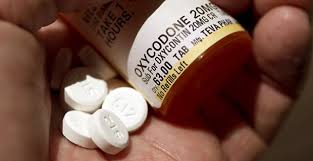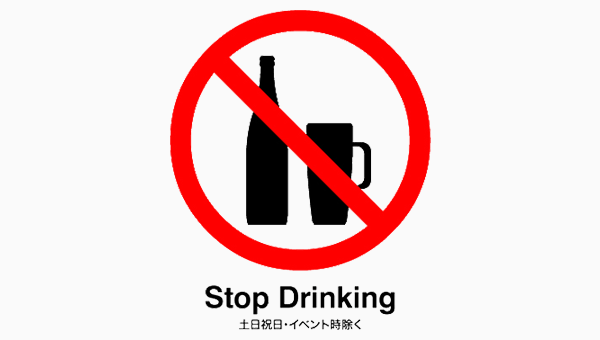Brain detox for successful addiction recovery
Brain detox for successful addiction recovery: The genesis of addiction treatment

The reason why brain detoxification is essential for mental health is because the brain is the coordinator successful of all bodily functions. It is therefore important that drug abuse be treated across all age groups.
In life if you want to be successful in anything you do, you must be in good health for it to come to pass. When the brain is ailing the whole body will be ailing too and that is why when dealing with the complications of alcohol and drug addiction, the health of the brain is very essential. That is why we want to focus our discussion on the possibilities of brain detox for successful addiction recovery. Experts from AWAREmed Health and Wellness Resource Center under the able leadership of doctor Dalal Akoury says that detoxing from drugs or alcohol can be a grueling experience but all the same it must be done because it is actually the genesis of addiction treatment whose primary goal is breaking the cycle of addiction and saving the value of life. And because we are talking about life we must emphasize that the successful detox will mark the beginning of the recovery process and mental health plays a significant role in determining the outcome says doctor Dalal Akoury MD, President and founder of AWAREmed Health and Wellness Resource Center.
Brain detox for successful addiction recovery: The dynamics that fuel complications related to addiction
Still on the role of mental health in successful detox, it is important to note that this will always come with certain challenges because addiction itself is not only a problem but also a serious mental health disease. It is important to note that the very dynamics that fuel the disease of obsession, compulsion, stress, depression and poor judgment just to list a few examples are laid bare during the detox process, this should therefore challenge the patient to withstand the discomforts of withdrawal as and when they come. That actually means that one of the key elements of success in early recovery is the individual attitude. Doctor Dalal Akoury in her over two decades in administering addiction treatment to people across the globe registers that having the wrong attitude can be a primary determinant in the outcome of a course of treatment. Patients are therefore encouraged to remain focus and to fight any signs of denial by all means so that together this problem can be defeated in tis entirely.
One very fundamental fact that we must stay focused on is that withdrawal is a process that can actually kill when not properly managed. This is a condition in which addicts can suffer severe damages and actually when in its most severe form, alcohol or any substance withdrawal can cause complications including but not limited to fever, extreme nausea, delirium, tremors and seizures. Long-term use of anesthetics, especially Benzodiazepines, requires medical intervention in order to successfully eliminate dependency which can effectively be done at AWAREmed Health and Wellness Resource Center up on scheduling for an appointment with doctor Dalal Akoury anytime any day of your choice. It is however important to note that the after-effects of withdrawal can last up to six months. Similarly, withdrawal from heroin or other opiates can cause extreme discomfort, and in the case of Methadone, can cause death. Meanwhile, detox from stimulants such as cocaine and methamphetamine poses fewer medical risks but can cause severe psychological discomfort.
The mental health component that treatment professionals hope for is the willingness to be compliant to cooperate in the brain detox process and hopefully have a goal in mind of long-term recovery. If this component is operative, then treatment can address both addiction and the underlying mental health issues. These underlying issues lie at the heart of addiction problem and are the key to solving it on a continuance basis. When these are identified and successfully addressed, the addict is less likely to feel that he or she must self-medicate in order to feel relief from an intolerable condition and that explains why brain detoxification is very essential in the whole process.
Brain detox for successful addiction recovery: Understanding drugs as one of the dark side of addiction treatment
Several drugs are administered in the treatment of addiction but this too can sometimes pose certain challenges. Like for instance just as an indicator of the scope of the current opioid addiction crisis, we can consider the following:
A single drug, intended to treat addiction, accounted for over one and a half billion dollars in sales annually. Originally billed as a safe alternative to methadone, buprenorphine primarily sold as Suboxone has a mixed history of success and unintended consequences in the world of addiction treatment.
Like methadone, Buprenorphine is an opioid. Opioids are substances that are classified as drug that includes any chemical that resembles morphine or other opiates in its pharmacological effects. The implication of that is that it produces a high besides causing dependency. This also appears to obey the law of diminishing returns in that using more of it does not produce a stronger high and the plateau effect is what makes Suboxone an attractive substitute for addicts seeking to manage their addiction. The inherent dangers of overdose, side effects from adulterants, and exposure to a criminal element when acquiring illegal drugs are all mitigated by taking a prescribed substance designed specifically to offer “harm reduction.” Alternatively, Suboxone is used to shift addicts’ primary addictions, after which a monitored tapering is employed with the ultimate goal of abstinence-based recovery.
Doctor Akoury is registering that although Suboxone, both as a maintenance drug and as an intermediary to abstinence, has had many successes it has its own dark side. The drug is often diverted from legitimate channels, and the profit motive has created a growing niche market. Clinics of dubious respectability dole out the drug with minimum restrictions, and people who don’t require or even like the drug personally buy it at the clinics and sell at a premium. There is enough of a euphoric high that there is a demand for Suboxone as a recreational drug, and now the safety of its use is being called into question. Those are just but a few dark sides of the drugs we often use and therefore we must all be on the look out to ensure that when looking at the role of mental health in successful detox, we do not slip into the dark side of the drugs we use. We all ore one another the duty of care by ensuring that drugs are only used for their intended purpose. You may want to get more clarifications from the experts at AWAREmed Health and Wellness Resource Center, by scheduling for an appointment with doctor Dalal Akoury today.
Brain detox for successful addiction recovery: The genesis of addiction treatment








